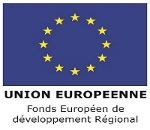GRESCO – Sociological Research Group on Contemporary Societies
EA 3815
Presentation
Olivier MASCLET – Director Tel. : + 33 (0)5 55 43 55 91 olivier.masclet@unilim.fr Adress : FLSH – 39E, Rue Camille-Guérin 87036 Limoges
> SITE INTERNET
Bi-site : Poitiers-Limoges Administrative Supervision : University of Poitiers – University of Limoges Parent Institute : SHS Associated Research Master : Problémes Sociaux et Enquête Sociologique Doctoral School : ED 613 – Science of society, Territories, Economics, Management (SSTSEG)
Key figures ( 30/06/2017)
Other researchers : 2
Doctoral Students : 4
Accreditated to direct research (HDR) : 2
19 people present
Scientific Publication (2012-2016)
Books : 11
Book chapters : 24
Conference presentations :19
Thesis defended : 17
> WEBSITE PUBLICATION
Research
The GRESCO focuses on 4 research areas :
- Axis 1 « Education, socialization, trajectories » concerns the sociology of learning, the themes of pedagogical configurations, disciplinary matrices, as well as the sociology of the diploma. It is part of the sociology of education and socialization, while emphasizing the analysis of trajectories. The educational space is understood as a place where conflicting social relationships are expressed, integrating the question of private or local universes (family, rural territory) mobilized by questioning the ways in which these configurations play on the socializing processes of early childhood or youth.
- « Cultures, lifestyles and social relationships ». The research projects in axis 2 are fully in line with the sociology of culture by integrating its different meanings. The definitions of the notion of culture vary in their extension: a universalist meaning pits culture against nature, and in a more relativistic way, understands culture as the set of mores and customs of a given group. A restricted use limits its use to works of legitimate culture, works of art and culture with symbolic legitimacy, while an anthropological approach designates, with the notion of culture, the ways of thinking, acting and feeling of different social groups (ethnic groups, classes, etc.).
- « Work, employment and social classes ». As its title indicates, Axis 3 develops research on emerging professional groups and the resulting recomposition of the social space; the focus is on work and the social groups that are formed in and through work activity or because of the conditions of access to employment. The descriptive categories used are examined, as well as the handling of the classifications produced by the analysis, with the constant concern to relate them to the historical and social circumstances of their elaboration by the sociologist.
- « Health, illness, disability « . The fourth axis brings together issues related to the determinants, uses, politicization, support and trajectories of people confronted with the question of health, whether due to chronic illness, physical, cognitive or psychological damage, wear and tear on the body, consumption practices (psychotropic drugs, doping products, water) or, finally, psycho-social risks. This concerns people with disabilities, socially vulnerable people (e.g. job seekers), the elderly, the chronically ill and people who may have consumption practices that generate social and health risks.
> Research Themes : Learning Processes and Social Inequalities Social Knowledge : categories of thought, categories of action Cultures, Territories, Collective Solidarity
> Keywords : Learning Higher Education Lifelong Development Professionalization Reforms Experts Rurality Public Utilities Culture Heritage
Equipment / Technical resources
Documentary collection in Social and Political Science research
Scientific valorization
Education, culture, health, ageing, disability, social relations



